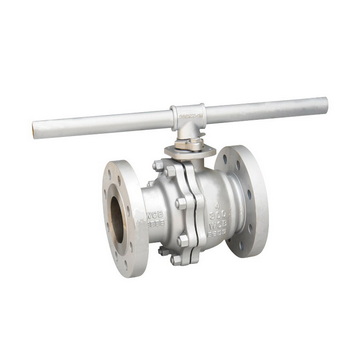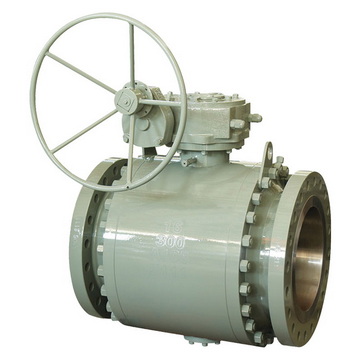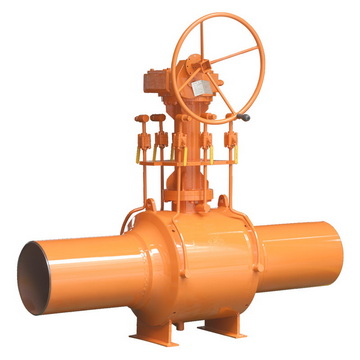How Stainless Steel Ball Valves Ensure Leak-Free Shutoff?
Content Menu
● What Are Stainless Steel Ball Valves?
● Why Stainless Steel Is the Material of Choice
● Key Design Features That Enable Leak-Free Shutoff
>> Precision Machining of Ball and Seats
>> Choice and Role of Soft Seats
>> Metal-to-Metal Sealing For Demanding Conditions
>> Stem and Body Seal Integrity
>> Floating Ball Versus Trunnion Design
● Manufacturing and Testing for Leak-Free Performance
>> Advanced CNC Machining and Polishing
>> Surface Treatments and Coatings
● Industry Applications Highlighting Leak-Free Importance
>> Seawater Desalination Plants
>> Chemical and Petrochemical Plants
● Valve Maintenance to Extend Leak-Free Life
● Frequently Asked Questions (FAQ)
>> 1. What are the advantages of using stainless steel ball valves over other materials?
>> 2. How do floating ball valves differ from trunnion-mounted ball valves in sealing?
>> 3. Can stainless steel ball valves be used in seawater applications?
>> 4. How is leak testing conducted for stainless steel ball valves?
>> 5. What maintenance practices are necessary for maintaining leak-free operation?
Introduction
In critical industries such as oil and gas, seawater desalination, and offshore drilling, ensuring the integrity of pipeline systems is of utmost importance. One of the key components guaranteeing safety and operational efficiency is the valve. Among the many types, stainless steel ball valves have become indispensable due to their excellent sealing characteristics and durability. This article delves deep into the technologies, materials, and design principles that allow stainless steel ball valves to provide a consistently leak-free shutoff across various challenging applications.

What Are Stainless Steel Ball Valves?
Stainless steel ball valves are quarter-turn valves that use a spherical ball with a hole through its center to control the flow of liquids or gases. When the ball's hole aligns with the pipeline, fluid passes through freely; rotate the ball 90 degrees, and the flow is stopped by the solid part of the ball blocking the passage. The valve body and ball are made of stainless steel, known for its durability and corrosion resistance.
These valves serve a wide range of industries requiring high reliability, including upstream, midstream, and downstream oil and gas sectors, marine and offshore environments, and seawater desalination plants. The stainless steel construction inherently resists corrosion, pitting, and scaling, which helps maintain a reliable seal over prolonged periods.
Why Stainless Steel Is the Material of Choice
The choice of stainless steel for ball valves is driven by several critical factors. First, its corrosion resistance to harsh chemicals, saltwater, and sour gases extends the valve's lifespan and reduces maintenance needs. Stainless steel also withstands extreme temperatures, both high and low, without losing mechanical integrity.
The material's strength ensures the valve can handle high pressures commonly found in oil and gas pipelines or offshore drilling rigs. Moreover, stainless steel's machinability allows manufacturers to achieve the tight tolerances necessary for perfect seals.
Unlike valves made from cast iron or brass, stainless steel valves maintain their structural and sealing properties even in severe environments, including fluctuating temperatures and pressures, which is essential to prevent leakage.
Key Design Features That Enable Leak-Free Shutoff
Precision Machining of Ball and Seats
The heart of a ball valve's leak-proof operation lies in the perfect mating between the ball and its seats. Manufacturers use high-precision CNC machining to create the balls with exact spherical shapes. The valve seats, typically made from soft polymers like PTFE or reinforced plastics, are also machined and polished to a very smooth finish.
This smooth surface reduces microscopic gaps between the ball and seat, where leaks could occur. The precise fit presses the ball tightly into the seat, forming a robust mechanical seal even under pressure.
Choice and Role of Soft Seats
Soft seats are commonly employed because they improve sealing by adapting to the ball's surface imperfections, even compensating for slight wear over time. Materials like PTFE offer low friction, which reduces torque requirements for opening and closing the valve. Besides PTFE, high-performance polymers such as PEEK are used in demanding situations because of their thermal resistance and chemical compatibility.
The soft seat acts as a primary seal, preventing fluid from leaking when the valve is closed. Even under variable temperatures or slight misalignments, the deformability of soft seats ensures continuous sealing integrity.
Metal-to-Metal Sealing For Demanding Conditions
In applications involving high temperatures or abrasive fluids, soft seats may degrade or deform. For these scenarios, metal-to-metal sealing technology is used — both the ball and seat surfaces are made of metal and precisely lapped against each other.
The metal seating surfaces are ground to an incredibly fine finish, allowing them to form a tight seal without the involvement of polymers. Metal-to-metal seats enhance valve lifespan and maintain leak-free performance in extreme heat or with highly contaminated fluids.
Stem and Body Seal Integrity
Leaks can occur not only through the main ball-seat interface but also along the valve stem or at the body joints. To combat this, valves employ robust sealing technologies around the stem, such as multiple O-rings or gasket packings made from chemical and temperature-resistant materials.
The valve body itself can be fully welded or feature high-quality threaded joints that are sealed to prevent leakage. These elements are critically designed to withstand pressure fluctuations and chemical exposure throughout the valve's service life.
Floating Ball Versus Trunnion Design
Stainless steel ball valves come primarily in two main designs—floating ball and trunnion mounted.
- Floating Ball Valves: In this design, the ball is free to slightly move laterally downstream when the valve closes. The line pressure forces the ball against the downstream seat, enhancing the seal. This mechanism works well for small to medium-sized valves and moderate pressures.
- Trunnion Mounted Ball Valves: The ball is fixed in place by upper and lower stem supports (trunnions), which absorb the pressure forces. This allows the seats to only seal without supporting the ball's weight. Trunnion designs are used for larger diameter valves and higher pressure systems, providing lower torque operation and improved sealing under demanding conditions.

Manufacturing and Testing for Leak-Free Performance
The production of stainless steel ball valves involves stringent quality standards and advanced manufacturing processes to ensure leak-free shutoff.
Advanced CNC Machining and Polishing
Every critical component—the ball, seats, stem, and body—is fabricated using CNC machining with tight tolerances. After machining, surfaces are polished to achieve extremely low surface roughness, critical for effective sealing.
Surface Treatments and Coatings
Some valves receive special treatments to further enhance corrosion resistance or reduce friction. Passivation improves stainless steel's natural oxide layer, while specialized coatings reduce wear on the seats and stems, prolonging effective sealing.
Rigorous Pressure Testing
Before shipment, valves undergo several pressure tests to confirm leakproof operation. Hydrostatic testing applies water pressure exceeding normal operating conditions to verify the integrity of the entire valve and its seals. Pneumatic tests use compressed air or gas to detect any tiny leaks.
These tests comply with internationally recognized standards such as API 6D, ISO 5208, or ANSI, creating confidence that the valves will provide safe and leak-free service in the field.
Industry Applications Highlighting Leak-Free Importance
Oil and Gas Industry
In oil and gas pipelines, valves must endure sour gas, corrosive fluids, and pressure extremes. Stainless steel ball valves are critical in upstream drilling, midstream transportation pipelines, and downstream refining processes. Leak-proof valves protect against hazardous releases and environmental contamination, as well as costly downtime.
Seawater Desalination Plants
Desalination involves harsh, saline environments that corrode typical valve materials quickly. Stainless steel valves resist saltwater corrosion and scaling, maintaining a tight shutoff to avoid seawater leakage that could damage sensitive downstream processes.
Offshore Oil Platforms
Offshore platforms face constant exposure to salt spray, changing temperatures, and extreme pressures. Stainless steel ball valves provide the reliable shutoff needed for safety, preventing leaks that could endanger personnel or cause environmental damage.
Chemical and Petrochemical Plants
Handling aggressive chemicals requires corrosion-resistant valves with proven sealing capabilities. Stainless steel valves prevent leaks that would otherwise result in hazardous chemical spills or process contamination.
Valve Maintenance to Extend Leak-Free Life
Even the best-manufactured valves require maintenance to continuously ensure leak-free shutoff.
- Regular Inspection: Periodically check valve tightness and the condition of seats, seals, and stems.
- Lubrication: Apply appropriate lubricants to stem seals and moving parts to reduce friction and wear.
- Timely Replacement: Replace worn or damaged seats, packing, or O-rings immediately to prevent leaks.
- Valve Operation: Open and close valves periodically to prevent seat sticking and ensure fluid doesn't build in one valve position.
- Automation and Monitoring: Modern valves can integrate sensors and actuators to monitor sealing status and detect leaks early.
Following these maintenance practices maximizes service life and maintains leak-proof performance throughout the valve's operational cycle.
Conclusion
Stainless steel ball valves achieve leak-free shutoff through a harmonious combination of superior materials, precision engineering, innovative design, and strict quality testing. Whether it is the carefully machined ball and seat, the choice of soft or metal seats, robust stem seals, or proven manufacturing techniques, every element contributes to sealing integrity. Their extensive applicability across oil and gas, desalination, offshore drilling, and chemical plants underlines their importance in industrial safety and efficiency.
Choosing stainless steel ball valves made with stringent standards ensures reliable shutoff in harsh environments, prevents costly leaks, and enhances system longevity. For industries requiring dependable valve performance, these valves are a proven solution to meet and exceed operational demands.
If you are looking to enhance your pipeline systems with top-tier stainless steel ball valves or need customized OEM solutions tailored to your industry's specific needs, contact our team today. Let us help you ensure your operations remain leak-free and efficient without compromise.

Frequently Asked Questions (FAQ)
1. What are the advantages of using stainless steel ball valves over other materials?
Stainless steel offers superior corrosion resistance, mechanical strength, and temperature tolerance compared to materials like brass or cast iron. This ensures long-lasting leak-free shutoff even in aggressive or extreme environments.
2. How do floating ball valves differ from trunnion-mounted ball valves in sealing?
Floating ball valves allow the ball to move slightly under pressure to seal tightly against the downstream seat, ideal for smaller valves and lower pressures. Trunnion-mounted valves fix the ball in place using supports, suitable for large valves and high-pressure systems, providing reliable, low-torque sealing.
3. Can stainless steel ball valves be used in seawater applications?
Yes. Stainless steel's excellent resistance to corrosion and saltwater makes these valves highly suitable for marine and seawater desalination applications, ensuring a long service life without leaks.
4. How is leak testing conducted for stainless steel ball valves?
Valves undergo hydrostatic testing using water under pressure to confirm structural integrity and seal tightness. Pneumatic testing with compressed air is also used to detect fine leaks. These tests adhere to API, ISO, or ANSI standards to guarantee the valve's performance.
5. What maintenance practices are necessary for maintaining leak-free operation?
Regular inspections to detect wear, timely replacement of seats and seals, lubrication of moving components, and operational cycling prevent valve sticking. Automated monitoring systems can also provide early leak detection, ensuring uninterrupted leak-free service.
Hot tags: Stainless Steel Ball Valve Leak-Free Shutoff, Leak-Proof Stainless Steel Ball Valves, How Ball Valves Prevent Leaks, Benefits Of Stainless Steel Ball Valves, Leak-Free Industrial Ball Valves, Stainless Steel Shutoff Valve Performance, Reliable Stainless Steel Ball Valve Seal, Advantages Of Leak-Free Ball Valves, Industrial Stainless Steel Ball Valve Applications, Ensuring Leak-Free Shutoff With Ball Valves